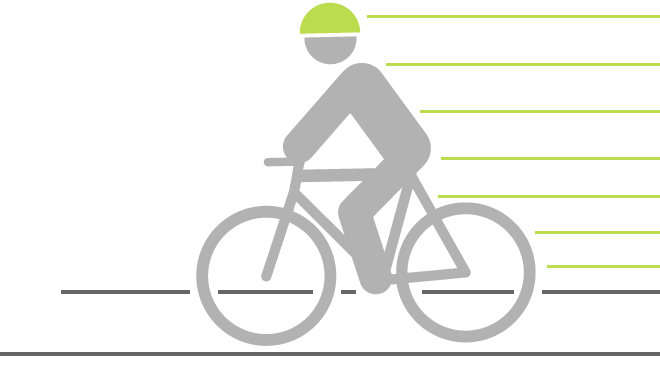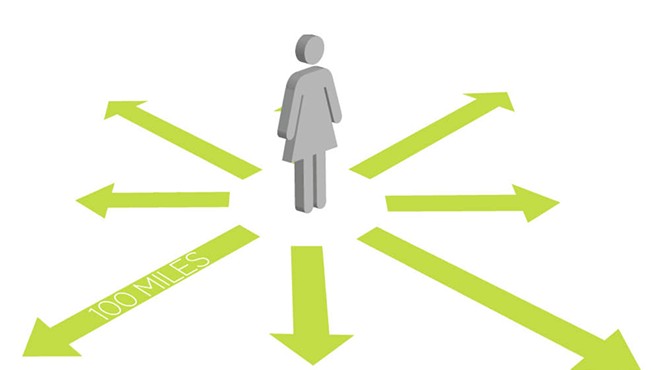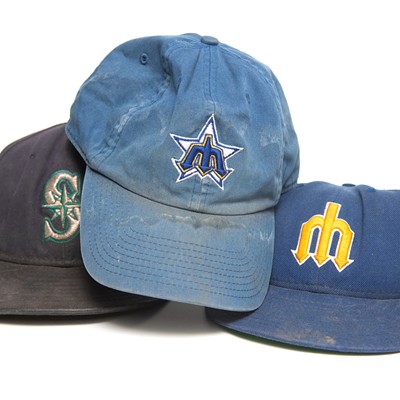In the first days of parenthood, you don't think about your newborn's environmental impact or how you're going to keep the planet intact for his future. You're mostly just trying to keep your brain from exploding upon realizing that you've been tasked with caring for a human being.
It doesn't take long for that to change, and I saw it happen within the past year. You think about the environment when you drop another diaper in the trash, or bump up the thermostat one more time, or run a load of puke-drenched laundry, or put a few days of dirty bottles through the dishwasher. You're buying more stuff — baby stuff — most of it inexplicably packaged in several layers of cardboard, plastic, staples and other high-security wrapping. It's easy to forget you've added another human to your household and that we humans leave a massive wake. This means more garbage, more energy usage (probably a higher power bill) and a larger overall impact on the environment coming out of your household.
When you bring a child into your home, you're no longer just thinking of your own needs, you're mostly thinking about your child's needs and what's comfortable and safe for them, notes Tom Lienhard, Avista's chief efficiency engineer.
Babies are often put near the floor — maybe in a rocker or on a blanket — and the parent gets down on the floor to check on them, then notices it's colder down there. So up go temperatures in the house, Lienhard says.
If you run warm, as I do and always have, those first few months of parenthood will be a sweaty time for you. Also sweaty will be the moments after opening your first utility bill as a parent, especially if your son has reflux and pukes with aplomb on both your clothes and his.
What really gets you feeling environmentally guilty is the poop and the pee. Well, not the poop and the pee themselves, but how you catch it. There's a lot of it, too. A 1998 study in the United Kingdom found that during the time a baby is in diapers (2.5 years on average) he or she will produce as much as 133 gallons of urine and 107 pounds of fecal mater. Gross.
The first few weeks of parenting seemed to be a drowsy blur punctuated only by diaper changes. You tell time by how many poops you've wiped and mark the days by emptying the trash can. That can is half diapers, and you feel like you've just shot Captain Planet through the heart.
So you tell yourself you're going to switch to reusable diapers, which unlike just a few years ago aren't that unusual. More and more parents are opting for reusable cloth diapers, which they either launder at home (which is cheaper) or have cleaned by a service, thus preventing the more than 2,000 diapers a typical baby goes through in a year (5,000-plus for the baby's time in diapers) from ending up in a landfill. These days, consumers have grown up in a recycling environment and are more used to the idea of reusable diapers, says Heather McNamara, the executive director of the Real Diapers Association, a nonprofit organization that advocates for, and educates the public about, reusable diapers.
"You see people carrying reusable water bottles. People are bringing their bags to the grocery store. You've got this generation that's coming up now that doesn't see [cloth diapers] as hard," says McNamara, whose organization is hoping to set the Guinness World Record on April 26 for the most babies changed at one time.
Just buying the diapers makes you feel good, even if the initial investment can run you north of $500, depending on how often you want to do laundry. In the long run, though, you know that you're saving more than $1,500, because disposable diapers are expensive. And when you start washing your own diapers, that garbage sack gets a little lighter.
But then your little guy has a particularly bad blowout one morning, you find yourself late for a meeting due to this literal shit storm, and you relapse, at least for a period, back to disposables. You realize that you're addicted to convenience and you feel awful about that, and doubly so when someone like McNamara boils it down for you.
"The culture of convenience is something that we should be willing to trade away for a sustainable Earth," she says. ♦






























